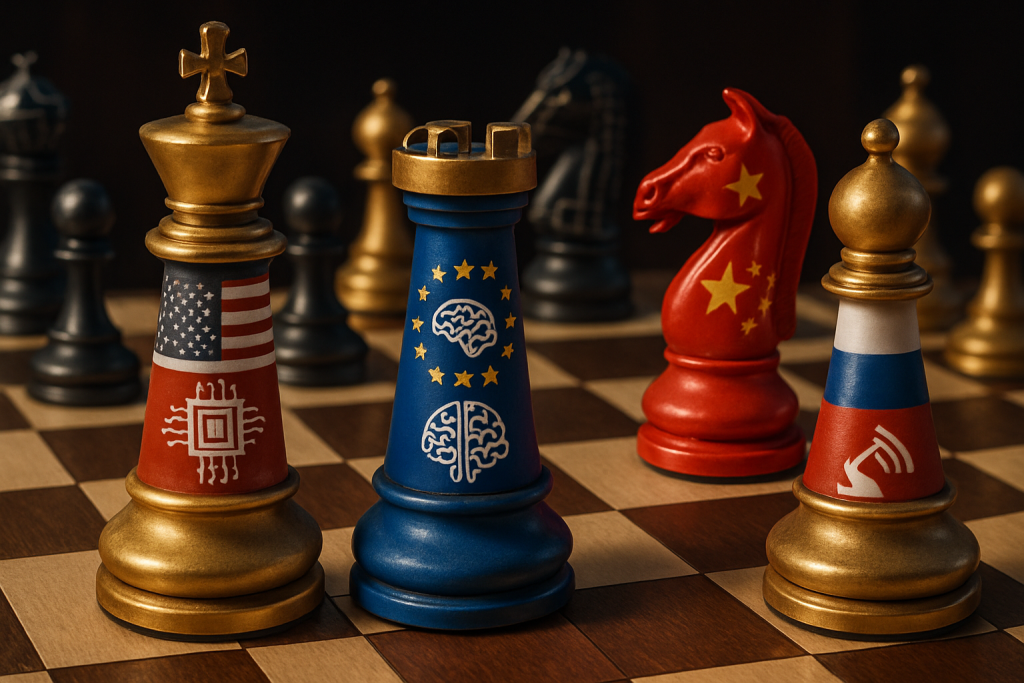The AI wars just got a whole lot more interesting. Remember that scene in WarGames where Joshua starts running simulations of thermonuclear war? Well, Meta just handed the keys to a pretty sophisticated simulator-of-sorts, Llama, to a whole bunch of our friends. And frankly, a few folks are probably sweating a little.
Yesterday, September 23, 2025, Meta officially announced that Llama, its powerful, multi-modal large language model (LLM), is going global. Not just to anyone, mind you, but to key U.S. allies in Europe and Asia. We’re talking France, Germany, Italy, Japan, South Korea, NATO, and the EU itself. This isn’t just about sharing cat videos; this is about sharing cutting-edge AI capabilities. And it’s a move with implications that ripple across geopolitics, tech dominance, and even the very fabric of how we understand intelligence.
Think of Llama as a digital Swiss Army knife. It doesn’t just process text like your grandpa’s chatbot. This thing chews through video, images, and audio too. It’s the kind of AI that can analyze satellite imagery for troop movements, translate languages in real-time during diplomatic negotiations, or even help design new materials with specific properties. The possibilities are, frankly, a little terrifyingly endless.
But why now? What’s the backstory here? This didn’t happen in a vacuum. For months, whispers have circulated about Llama’s potential. The AI arms race is hotter than ever, with countries and corporations vying for dominance. Meta, still smarting from criticisms about its handling of data and its impact on, well, pretty much everything, wants to rebrand itself as a force for global good. Or at least, a force that isn’t perceived as purely self-serving. Giving Llama to allies gives Meta a seat at the table, a seat they desperately want.
And then there’s the U.S. government’s recent blessing. Uncle Sam gave Llama the thumbs-up for use within federal agencies. That’s a HUGE vote of confidence. It suggests that Llama has passed muster on security, reliability, and ethical considerations. Or, at the very least, that the potential benefits outweigh the risks in the eyes of Washington.
So, who exactly benefits from this AI bonanza? Besides Meta’s PR department, of course. Well, imagine a French intelligence agency using Llama to analyze social media chatter for potential terrorist threats. Or a German research lab using it to accelerate the development of renewable energy technologies. Or the EU using it to monitor disinformation campaigns targeting elections. The potential applications are vast and varied. And let’s not forget the tech companies lining up to help deploy Llama. Microsoft, Amazon Web Services, Oracle, and even Palantir are all in on this. That’s a pretty powerful consortium.
The Zuckerberg Gambit: Innovation vs. Domination
Now, let’s talk about Zuck. He’s playing the “open source” card, releasing Llama largely free of charge to developers. He claims it’s all about fostering innovation and reducing reliance on competitors. But let’s be real, there’s more to it than altruism. Zuckerberg is a chess player, not a philanthropist. He wants Llama to become the de facto standard for AI development, the Android of the AI world. If everyone’s building on Llama, Meta wins, even if they’re not charging a fortune for it. It boosts engagement across Meta’s platforms, giving them invaluable data and influence. It’s a long game, and Zuck’s playing it hard.
The Geopolitical Chessboard
But here’s where things get really interesting. This isn’t just about tech; it’s about geopolitics. By sharing Llama with allies, the U.S. is essentially strengthening its digital alliance against, well, let’s just say countries that aren’t exactly fans of democracy. Think of it as a digital version of the Marshall Plan, but instead of rebuilding infrastructure, we’re sharing AI capabilities. It’s a way to counter the growing influence of China and Russia in the AI space. It’s a high-stakes game of digital chess, and the pieces are constantly moving.
The Ethical Minefield
Of course, no discussion about AI is complete without a healthy dose of ethical hand-wringing. Llama is a powerful tool, and like any powerful tool, it can be used for good or for evil. What happens when Llama is used to create hyper-realistic deepfakes that sow discord and undermine trust? What happens when it’s used to automate surveillance on a massive scale? What happens when it’s used to develop autonomous weapons systems? These are not hypothetical questions; they are very real concerns.
And let’s not forget about bias. AI models are only as good as the data they’re trained on. If Llama is trained on biased data, it will perpetuate those biases, potentially leading to discriminatory outcomes. Ensuring fairness, transparency, and accountability in AI development is crucial, but it’s also incredibly challenging.
The Financial Fallout
The financial implications of this move are also significant. Meta’s stock price jumped (naturally) after the announcement. Companies that are building on Llama are likely to see a boost in their valuations. And the overall AI market is poised for even more explosive growth. But there are also potential losers. Companies that are competing with Llama, particularly smaller startups, may find it difficult to compete. And there’s always the risk of an AI bubble, where valuations become detached from reality, leading to a painful correction.
In the end, Meta’s decision to share Llama with its allies is a bold and complex move with far-reaching consequences. It’s a testament to the power of AI, and a reminder of the responsibility that comes with that power. Whether it’s a brilliant strategic play or a dangerous game remains to be seen. But one thing is certain: the AI revolution is here, and it’s changing everything.
Discover more from Just Buzz
Subscribe to get the latest posts sent to your email.


